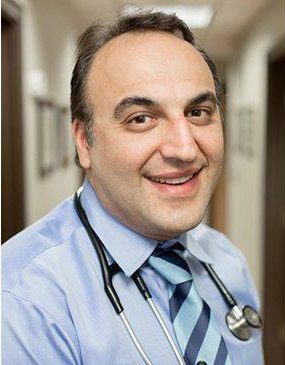Dr. Scalise had a lifelong dream stemming from the Gemini and Apollo missions, to be an astronaut. Through his father’s diplomatic connections, he could have easily gotten a letter from the Vice President’s office to help pursue his dream. However, at the last minute, he changed what he felt interested in.
Son of a diplomat, born in Cyprus, Dr. Scalise, is no stranger to the international world. He lived in Singapore, Bolivia, Germany, and Iceland throughout his life, finishing his international journies in the United States for his high school years. Having traveled much and experienced the diplomatic world, Dr. Scalise fostered a special international-awareness.

Like most people, Dr. Scalise was unsure of what his focus was. He landed a degree in Psychology due to his fascination with the human mind and behavior, when he was living in Nova and attending William And Mary, the second-oldest campus in the country. After graduation, he realized that he couldn’t do a lot with a BS in Psychology alone, and decided to pursue a master’s in counseling. Following this, he earned a post-masters in marriage and family and a doctorate in organizational leadership.
Throughout his career, he secured 3 different mental health licenses, separate from his education. Dr. Scalise has been in the health field for 40 years now and has been involved in both in-patient and out-patient academia and some ministry-based organizations. During his time at Eastern State Hosptial (the first mental health hospital in the country, back when they were called asylums), he worked as a child and adolescent director, dealing with patients between ages 4 and 17. He stayed in hospital work and served with an organization in Houston. He was overseeing ten to eleven psychiatric programs at once. In the ’80s, when managed-care hit the scene, Dr. Scalise saw “the writing on the wall” that doing treatment programs in the hospitals would not be covered by health benefits. Due to this realization, he decided to switch to private practice.

Dr. Scalise started his own practice for 15 years, owning two offices and employing 25 therapists under him. He started to adjunct teach and became the program department chair for counseling programs at Regent University. Dr. Scalise then went to work for a faith-based organization in the mental health field until he landed where he is now, a smaller organization with programs and resources from what he would consider being “lay counseling” up to clinicians.
Some highlights of his career were when he got his first license, obtaining his doctorate, and jumping into the adventure of starting his own practice. Getting his first license was a highlight because it invested time and money into getting an education and opening the state’s letter, welcoming him as a licensed therapist. Before getting a doctorate, there are courses and the doctorate exams while getting your ABD to write a dissertation. He remembers getting the email and not opening it all day, which felt more exciting than getting the degree itself. And jumping into the adventure of starting his own practice was a good experience and entrepreneurial. He feels that his current environment allows him to incorporate many of his life experiences.
Regarding whether there are misconceptions with his field, he believes there are none. “No one is perfect, and perhaps not everyone would agree with my position on something, but that’s not necessarily a misconception,” Dr. Scalise said during his interview. Yet there is one thing in his field that truly concerns him.
What concerns Dr. Scalise is the suicide rate among veterans. Suicide is the biggest crisis facing veterans right now that has many tentacles void of a singular issue. Roughly 22 veterans commit suicide a day. Many things are attached to veteran suicide, such as PTSD or TBI, the hidden wounds of war. Dr. Scalise says, “the things that veterans bring back from combat zones that are under the surface, which go unsaid, manifest into suicidal gestures or completion.”
“Suicide is a permanent solution to a temporary issue.”
“We who are in the medical professions, especially mental health, need to help destigmatize mental health and mental illness. There seems to be a lot of shame, guilt, and confusion because people often believe they should be able to control their thoughts and feelings at any given time, with other factors going on that they wrestle with.” Scalise continued, “Because we as a society have not destigmatized mental health efficiently, it has created isolation and conditions that people then suffer from and isolate.” Isolation is a big risk factor for suicide and substance abuse. However, they are not alone; they are not the only ones with certain experiences that have led to this.
The statistics right now would say that one in every three girls and one out of every five boys would have experienced some form of abuse before graduating high-school. If you walk into any place, roughly a fourth of everyone there has had some level of abuse in their background. People often feel ashamed and wonder if others feel what they have been feeling. With veterans, there is the power of community and support systems to help them. No one person can do it all. As a mental health professional, when Dr. Scalise used to train clinicians, he used to say, “listen, you’re going to see your patient or client one hour a week. There are 168 hours in a week, and people will need more support and encouragement than you can provide in an hour. We all have to be willing to bring in others who can sort of offer support and care”.
Mental illness crosses every demographic, socioeconomic level, and culture; it’s an equal opportunity destroyer.
For Dr. Scalise, having skin in the game in his two military sons adds value to doing private practice for veterans. Sometimes, there is a level of dignity that comes when you feel like you’re independent enough to work and take care of yourself and have a purpose again, especially for veterans with physical abilities. Capturing that sense of dignity is huge. The practical side of things of having a trade or income-producing field is also huge.
Above all, the community is important. The military is all about the community. They may not always agree with the reason that they are fighting, but they willingly serve. What mattered most to them was their unit, squad, and platoon, which they served within those foxholes. The comradery is baked into military cultures. Because of mental health issues, veterans suffer in silence, but having a community will help create a healing culture. This will help strengthen the narrative to destigmatize that these veterans are not damaged people for life.
People with trauma are not ticking time bombs. Although there are isolated cases, that’s not the general thing. Destigmatizing the notion is good and showing that people can be reintegrated into society is huge.
The faith-based program Bob Dees is doing, The National Center for Healthy Veterans will be a sort of active learning lab to integrate the faith component and show that faith makes a difference. There is an element within the bureaucracy that you can’t always talk about faith. But, the research and studies show overwhelming evidence that faith makes a difference. What Dr. Scalise likes most about the center is that faith matters and shows that it makes a significant difference in recovery.
Dr. Harold Koenig is a psychiatrist at Duke Medical Center and director of the center for religion, spirituality, and health. He has done more research on the connection between faith, health, and wellness. He confirms that faith should be involved in holistic orientation. At the National Center for Healthy Veterans, they will be tending to the physical, emotional, mental behavior, using faith.
Dr. Scalise sees his field moving more towards the digital world because the technology now supports that. Months ago, the department of health and human services relaxed its telehealth guidelines because people were sheltered in place. Six months ago, no one really knew what a Zoom call was, let alone how to use it, but now everyone has grown comfortable with it. Dr. Scalise would argue that there are benefits from sitting 6 feet away from your client. Also, Zoom calls still allow clinicians to see the non-verbal and verbal cues from a patient.
Many counselors have begun adding life coaching to their repertoire of services. Since life coaching is not regulated, Dr. Scalise says he could be a life coach across the state or international lines, allowing some significant impact. Also, it seems in this day and age that everyone is a specialist in something, reducing the amount of all-in-one medical professionals.
When asked about what advice Dr. Scalise would give to the next generation, he said, “As a balance to what I said about technology, we live in the most technologically connected world that we have ever lived in, but the most relationally disconnected. Healthcare is not just an academic process. When physicians take the Hippocratic oath, it is because they genuinely care about the wellbeing of people. This coming generation cannot dismiss the relational component of people helping in health care, even though you have this whole area of technological tools at your disposal now. Don’t abandon the relational component”. He also says to commit yourself to be a lifelong learner. Information, research, and technology are rapidly changing. If people don’t stay current with what’s out there, it will diminish their work capacity. Essentially, don’t throw all your eggs into the technological basket.
As for what’s next for Dr. Scalise, he says that he is ready for another grandchild or two, but professionally he is pleased where he is at. The research shows that lay counseling is just as effective as licensed therapy. The quality of the relationship increases between the one receiving and the one giving the counseling. Therefore, he feels he would be happy to finish out his career in such an environment.
Donate Today to Support the National Center for Healthy Veterans: https://newhorizonsfoundation.com/waystodonate?pid=2280-national-center-for-healthy-vete&Itemid=105






0 Comments